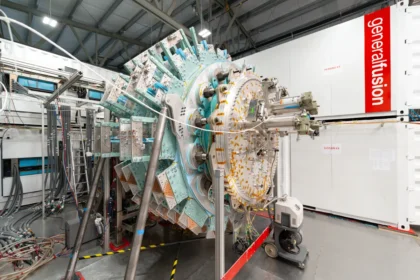Bianca Cefalo grew tired of corporate red tape in the space industry, so she built her own company to do what others wouldn’t. In 2022, she launched Space DOTS, a startup focused on detecting and interpreting threats in orbit.
At the heart of the company is SKY-I, a software platform designed for space tech manufacturers and operators. It helps them detect, interpret, and attribute both natural and human-made threats in orbit, from radiation to unexplained glitches often dismissed as “space weather.”
Cefalo brings decades of experience to the venture. She worked as a thermofluid dynamic analyst on NASA’s InSight Mission to Mars and as a product manager at Airbus Defence and Space, contributing to satellite and lunar projects. But inside the corporate world, her ideas often hit walls. “We were told to innovate, but they refused to adopt anything unproven,” she recalled. “I got bored of the game.”
With Space DOTS, she set out to change that. The company generates proprietary in-orbit environmental data, combines it with external sources, and delivers real-time insights to help spacecraft survive in contested orbital environments. Cefalo says nearly 15% of spacecraft suffer anomalies due to operators misunderstanding the complexities of space.
On Monday, Space DOTS announced a $1.5 million seed round led by Female Founders Fund, bringing its total funding to $3.2 million. Other investors include Sie Ventures, Feel Ventures, and General Electric Company. Cefalo described the fundraising journey as “dating-to-marry,” highlighting the persistence needed to find the right partners.
Competitors such as Ensemble Space Labs and Mission Space are also racing to provide orbital intelligence, but Cefalo says Space DOTS stands apart by owning both its hardware and software, focusing on defense and threat attribution rather than just forecasting, and building decentralized software for resilience in multi-orbit operations.
Looking ahead, Cefalo plans to expand her teams in London and the U.S., while preparing her technology for upcoming missions. For her, the future of space must be rooted in shared knowledge rather than siloed power.
Related: ICE Resumes $2M Contract With Israeli Spyware Maker Paragon Tech Happened
“The more we understand what’s happening out there, the better we can protect what matters down here: national infrastructure, civil safety, navigation, and defense,” she said. “That knowledge can’t stay locked inside agencies or corporations; it has to become shared understanding, radical access, and planetary belonging.”





